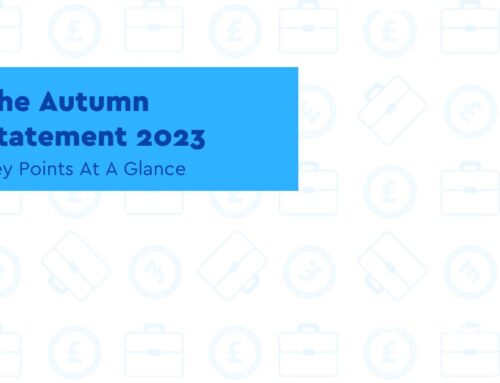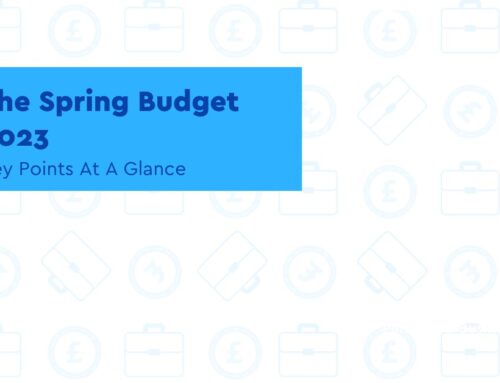News – Finance
Chancellor delivers emergency statement
Key Points
- The Chancellor has scrapped plans to cut the basic rate of income tax from 20p in the pound to 19p from April
- The cut to National Insurance will remain, as well as cuts to stamp duty.
Chancellor Jeremy Hunt has ripped up the mini-Budget plans today after accelerating measures that were set to be announced as part of the Medium-Term Fiscal Plan on October 31.
The Chancellor announced he is reversing almost all tax measures announced in the growth plan three weeks ago that have not started parliamentary legislation in order to provide ‘confidence and stability’.
He did, however, confirm that the cut to National Insurance will remain, as well as cuts to stamp duty.
“It is not right to borrow to fund this tax cut”
The Chancellor has scrapped plans to cut the basic rate of income tax from 20p in the pound to 19p from April next year, citing the demand from markets on commitment to sustainable public finances.
The rate will remain indefinitely at 20p until economic circumstances allow it to be cut, he confirmed.
The measure was announced by former chancellor Kwasi Kwarteng in September’s mini-budget – he said it would benefit more than 31 million people.
Hunt also confirmed that the Government will now no longer be proceeding with:
- VAT free shopping for overseas visitors
- The cut in the tax rate on dividend income, which will also not happen from April 6, 2023
- The repeal of off-payroll working IR35 reforms
- Freeze on alcohol duty rates
Review of energy bills help announced
The Chancellor has announced that a Treasury-led review will take place into how people are helped with energy bills from April next year.
The objective is to design a new approach to save taxpayers money while targeting support to those most in need, he says.
Business support will also go to those most affected and will incentivise energy efficiency.
Hunt will give a further detailed statement to parliament later today.
News – Energy
Energy Price Guarantee cut short with review of longer term support announced
Key Points
- The Energy Price Guarantee in its current form will now only run until April
- It caps the unit price of energy at 34.0p/kWh for electricity and 10.3p/kWh for gas
The Energy Price Guarantee in its current form will now only run until April, according to newly appointed Chancellor Jeremy Hunt.
Setting out new fiscal plans this morning, Hunt reversed much of what was announced in his predecessor Kwasi Kwarteng’s mini-budget on 23 September.
While this did not include the total scrapping of the Energy Price Guarantee – which was first announced on 8 September and reconfirmed in the mini-budget – the government is now moving to scale it back.
It will now run until April 2023 and a review will be launched with the view of bringing in a more targeted scheme in the long-run.
The Energy Price Guarantee caps the unit price of energy at 34.0p/kWh for electricity and 10.3p/kWh for gas, inclusive of VAT, for those on a standard variable tariff from 1 October.
Those on fixed tariffs at a higher rate than the new price freeze due to the recent energy price rises will see their unit prices reduced by 17p/kWh for electricity and 4.2p/kWh for gas from 1 October.
As such, the average household’s energy bills are set to be £2,500, saving them around £1,000 a year. This represents a significant drop from the £3,549 price cap for the Q4 period previously announced by Ofgem, which it supersedes.
According to Kwarteng, the scheme was expected to cost £31 billion over its first six months.
This article was derived from: https://www.current-news.co.uk/news/energy-price-guarantee-cut-short-with-review-of-longer-term-support-announced
News – Business
Small businesses will still benefit after corporate tax backflip
Key Points
- The legislated increase in the Corporation Tax rate from April 2023 will go ahead
- Smaller or less profitable businesses will not pay the full 25% rate
On Friday, the Government reversed the Corporation Tax and announced it will now increase the tax to 25% from April 2023 raising around £18 billion a year and acting as a down payment on its full Medium-Term Fiscal Plan.
Prime Minister Liz Truss said the legislated increase in the Corporation Tax rate from April 2023 will go ahead, with most small businesses benefitting from the new small profits rate.
She said the previously announced small profits rate of Corporation Tax will be maintained. Smaller or less profitable businesses will not pay the full 25% rate, and companies with less than £50,000 of profit – the large majority – will not see any increase at all, continuing to pay Corporation Tax at 19%.
Chancellor Jeremy Hunt will deliver the Medium-Term Fiscal Plan on October 31, detailing action to get debt falling as a percentage of GDP over the medium term.
The decision has been taken in recognition of the need to ensure the UK’s economic stability and reassure markets of its commitment to fiscal discipline, after elements of September’s Growth Plan went further and faster than markets were expecting.
Ms Truss said the UK’s corporate tax regime will remain competitive and supportive of growth at the 25% rate, continuing to be the lowest rate in the G7. As part of the forthcoming tax review, the government will look at how the tax system can go further to promote growth and investment.
Mr Hunt said he will set out the government’s Medium-Term Fiscal Plan on 31 October, alongside a full forecast from the independent Office for Budget Responsibility.
This article was derived from: https://www.financialaccountant.co.uk/news/small-business-will-still-benefit-after-corporate-tax-backflip
News – Business
Red tape cut for thousands of businesses
Key Points
- The definition of a small business will now include businesses with fewer than 500 employees
- This will make an additional 40,000 businesses exempt from future and reviewed regulations
Thousands of the UK’s fastest-growing businesses will be released from reporting requirements and other regulations in the future, as part of plans aimed at boosting productivity and supercharging growth.
Currently, small businesses are presumed to be exempt from certain regulations. However, many medium sized businesses – those with between 50 and 249 employees – still report that they are spending over 22 staff days per month on average dealing with regulation, and over half of all businesses consider regulation to be a burden to their operation
The definition of a small business will now include businesses with fewer than 500 employees. This will make an additional 40,000 businesses exempt from future and reviewed regulations, potentially saving them thousands of pounds.
The move is part of the Government’s wider plans to encourage economic growth and, according to the PM, will create “higher wages, better jobs and more funding for our public services and NHS.”
Previously, the definition of small-to-medium enterprises (SMEs) only included those with less than 250 employees. SMEs are generally exempt from certain regulations and have less bureaucracy to deal with than their larger counterparts.
The exemption will be applied in a proportionate way to ensure workers’ rights at the same time as reducing the burden for businesses.
The Government will consider extending the threshold to businesses with 1,000 employees once the impact of the new extension is known.
Latest Snippets
Businesses need ‘reassurance from fiscal statement’ after fall in GDP
Businesses will need to be reassured by the Chancellor’s fiscal statement on October 31 after the UK’s GDP dropped in August, the Confederation of British Industry (CBI) has said.
The UK economy shrank by 0.3% in August, according to new data from the Office for National Statistics (ONS).
This decrease in GDP was unexpected following a 0.1% growth in July, and strengthens concerns the UK will soon fall into recession. Analysts had expected economic growth to stall as businesses and households struggled with soaring prices.
The Bank of England has warned the UK will fall into recession towards the end of the year.
Ben Jones, Lead Economist at the CBI, said: ‘The UK economy retreated in August. And business surveys, including our own, have turned sharply downwards since the summer and there is an increasing chance that the UK entered a downturn during the third quarter.
New Starter Checklist
The Starter Checklist has been developed into online interactive guidance that allows a new employee to answer a series of questions and select the appropriate answers to their circumstances. This will produce a new starter declaration which can then be downloaded and emailed or posted to the employer.
This interactive checklist has been developed as nearly three million RTI submissions were received in 2021/22 for new starters that contained discrepancies. The new guidance will help to avoid postage costs, incorrect tax being applied, and should save employees and employers time and the need for contact with HMRC.
For those taxpayers that require a print and post service, the Starter Checklist has been amended to reflect the interactive guidance and can be printed from GOV.UK. It includes instructions for employers to gather information about your new employee if they do not have a P45.
Get In Touch
At Morgan Reach, we understand every business needs a little help now and again-especially when it comes to the financial side of things. Therefore, to help our clients and visitors we endeavour to cover as much of the business news as possible. If you are self-employed or run a business and need assistance and advice on how these news could make a difference to you or your business, feel free to get in touch with the experts at Morgan Reach. Our business growth experts at Morgan Reach will guide you through what support is available for you or your business as well as the latest news that may affect you.







